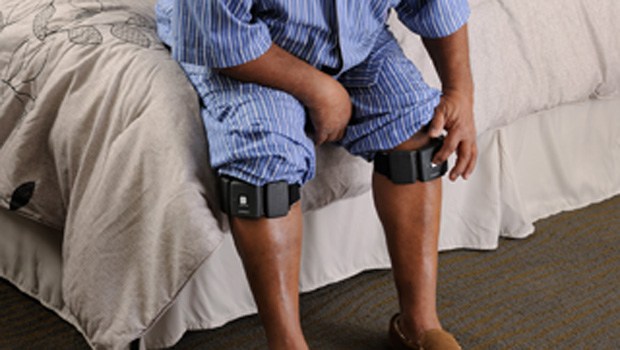Statins have Benefits but Increase Insulin Resistance and HbA1c
Your cholesterol medication is bad for your blood sugars and can accelerate your diabetes; here are suggestions that provide better results

Statin therapy is widespread but increases diabetes risk
Every year, there are more than 250 million prescriptions filled for statins — a class of drug used to treat high cholesterol and blood pressure.
A recent study published in Diabetes Metabolism Research and Reviews concluded that taking statins can actually double a person’s risk of developing type 2 diabetes.
The study also found that patients taking statins saw a significant increase in their HbA1c.
Used to lower your LDL (or “bad”) cholesterol, statins are supposed to improve your overall well-being by reducing your risk of heart attack, stroke, and heart disease.
For the diabetes population, they are heavily recommended as a critical part of your long-term care, but their impact on your blood sugar, HbA1c, and insulin resistance is concerning.
Benefits vs risks are being debated
Are statins making your blood sugars harder to manage?
Many experts argue that the benefits of statins outweigh the risks, but others are adamantly against them — and even argue that LDL cholesterol is a necessary part of health.
Dr. Alexander Reeves, MD, is a neurologist and former professor of neurology at Dartmouth Medical School who travels the globe speaking on the danger of prescribing statins.
“I think it’s foolish to treat type 2 diabetes with statins,” argued Reeves. “The research demonstrates that they can actually make it more difficult to manage blood sugar levels, which in turn, isn’t going to improve a patient’s overall health at all.”
An alternative to lowering LDL is to focus on increasing HDL. Raising HDL levels naturally (versus drug therapies that do so) can actually improve LDL levels by removing the oxidized cholesterol and recycling it through the liver.
Non-drug alternatives
Increasing HDL actually comes down to many of the same habits that improve insulin sensitivity and blood sugar levels.
Dr. Reeves recommends the following:
Exercise daily
Exercising every day (even walking for 20 minutes counts!) should be considered just as important as checking your blood sugar and taking your medications. For a person with diabetes, there’s simply no way around this: you’ve got to get up and get moving.
If not for the sake of improving insulin resistance, it’s also critical for your heart health, your blood circulation (to help prevent or improve neuropathy), your emotional health (exercise increases dopamine production and reduces stress), and for your bone health!
If exercise isn’t already part of your daily regimen, it’s time to ditch the excuses and get moving. Start with 10 minutes of walking before or after dinner — and be sure to check your blood sugar and carry fast-acting carbohydrates if you take medications that can cause low blood sugars.
Quit smoking
Improving your health as a person with diabetes is going to be a never-ending battle if you’re still smoking cigarettes. It increases your risk of diabetes complications in your eyes, fingers, and toes tremendously, and has proven in research to increase blood sugar levels via insulin resistance.
Likely, you’ve already tried to quit. Even more likely is that you found yourself eating more and possibly gaining weight after quitting — which can be an incredibly stressful side-effect.
But research indicates that if you can stick with the plan and work through those first few months of cravings you’ll see the benefits in your blood sugar and level of insulin resistance.
While you’re focused on quitting, be sure to focus on exercising daily, too, to help counter the weight-gain from potential food cravings.
Follow a plant-based diet
Despite the abundance of restrictive fad-diets out there today, you need to focus on only one thing — eat more vegetables, healthy fats, and whole foods in general
The moment you swap the muffins and toast for an apple, a handful of cashews, two eggs, your blood sugars will thank you.
But remember, the goal is to create a nutrition plan you can follow long-term which means your whole food diet doesn’t have to be 100 percent perfect. It can include things you love — including pasta or dessert — but those less healthy items need to be limited.
When the first 3 meals of your day are full of vegetables and other whole foods, you have room for that bowl of pasta or those homemade cookies. You don’t have to do it all perfectly, just do it thoughtfully.
Drastically reduce processed/packaged carbohydrates
Bread, pasta, desserts, crackers, chips, orange juice, and other sugary beverages/sodas are evil.
Every time you eat food from a box or a bag or drink from a package, you are consuming a variety of ingredients you can’t pronounce and which are not good for you. Spend a few days simply writing down all of the food you eat in a day and take a look at that list.
How many items come from a package?
It isn’t just the sugar, it’s also the heavily processed carbohydrates (even in a “whole grain” slice of bread), the additives to keep it fresh, the food coloring, the fake flavoring, and so on.
You don’t have to give them all up but if your goal is to improve your insulin resistance, this part of your diet needs a closer look.
Cut back on alcohol
Alcohol is a toxin. Period.
Whether it came from grapes, grain, or agave, it is something your liver has to immediately process in an effort to rid your body of this poison.
Drinking the occasional glass of red wine has some benefits but you do not need to add alcohol via red wine to increase your HDL and decrease your LDL. Recent research has shown that non-alcoholic red wine containing beneficial polyphenols has just the same benefits to your cholesterol levels as alcoholic red wine.
Overall, alcohol — especially when consumed in larger quantities — has a tremendous negative impact on insulin resistance. And the effects of one night of heavy drinking can actually increase insulin resistance for several days after the alcohol has been processed and cleared from your system.
Alcohol should be consumed carefully — especially if you have diabetes. Consider it as much of an indulgence as ordering pizza. You wouldn’t eat pizza every night if you’re concerned about your health, right?
Cutting back on alcohol will also inevitably lead to weight-loss which will improve insulin sensitivity.
Conclusion
The intersection of cholesterol and insulin resistance is a hot-button issue these days, but fortunately improving both comes down to the same smart, healthy habits. When you’re ready to embrace those habits, you’ll see nearly every part of your health improve.




